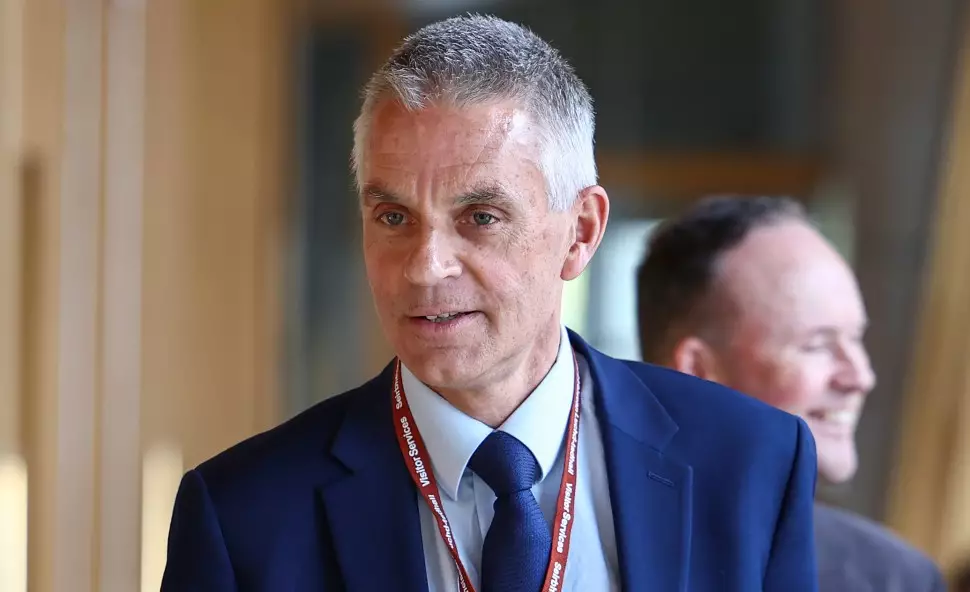In an epoch where climate change looms large over global discourse, industry leaders are recognizing the imperative to elevate these conversations through various forms of media. Tim Davie, the Director General of the BBC, is set to take a bold stance by addressing this critical issue at the upcoming Climate Creatives event. Highlighting the necessity for sustainable narratives, Davie’s call to integrate climate-related content into mainstream programming is a significant step towards making these urgent topics accessible to a wider audience.
As the media landscape rapidly evolves, the intersection of entertainment and environmental responsibility has become an area ripe for exploration. While documentaries and current affairs have long been the traditional vehicles for such discussions, Davie’s advocacy for diverse genres—such as drama, children’s programming, and entertainment—signals a shift towards a more integrated approach. This is not merely a matter of ticking boxes; rather, it represents a profound opportunity for creativity within the industry.
Davie’s emphasis on audience interest in sustainability issues cannot be overstated. The contemporary viewer is increasingly conscious of the climate crisis, seeking narratives that resonate with their values and concerns. By harnessing this enthusiasm, media producers can craft engaging stories that not only entertain but also educate and inspire action. The challenge lies in breaking away from the conventional narrative structures and exploring new creative avenues that highlight environmental themes authentically and compellingly.
The BBC, as a public service broadcaster, has a unique responsibility to lead by example. Davie’s assertion that sustainability should be at the forefront of programming reflects a deeper understanding of the role media plays in shaping public awareness and attitudes toward climate issues. This proactive stance is vital, as it not only benefits the viewers but also positions the BBC as a leader in the industry—championing the cause of sustainability in a landscape that often prioritizes profit over purpose.
The call for action extends beyond the walls of the BBC. At Climate Creatives, Davie will encourage industry-wide collaboration, urging other networks and production companies to join in this crucial dialogue. By pooling resources, knowledge, and creativity, the sector can create a powerful unified front that prioritizes environmental sustainability. This is particularly critical as the media industry grapples with its own carbon footprint, where the need to reduce environmental impact complicates traditional production practices.
The participation of key figures across the media spectrum—including commissioners, producers, and notable presenters—at events like Climate Creatives exemplifies the potential for collective action. By fostering an environment of open dialogue about sustainability, the industry can engage in necessary self-reflection and explore innovative solutions to reduce environmental harm.
Reflecting on Davie’s vision, the notion of success in the media industry must evolve. Rather than solely focusing on ratings and revenue, a new paradigm should prioritize the media’s role as a catalyst for change. This requires a fundamental shift in how content creators and consumers evaluate the impact of their work. A program that ignites conversations about sustainability, inspires change, or brings attention to environmental injustices can have a profound effect, transcending mere entertainment value.
The potential for film and television to influence social attitudes is immense. Recent efforts during events like Climate Week in New York demonstrate how media can mobilize public interest and action around climate change. As industry stakeholders gather to discuss and promote climate narratives, the momentum towards a more sustainable media landscape accelerates.
The media industry stands at a crossroads. With leaders like Tim Davie calling for a concerted effort to prioritize climate narratives, there is an unprecedented opportunity for creators to redefine storytelling in a way that highlights sustainability. By fostering meaningful dialogue, collaborating across networks, and committing to innovative content strategies, the media can galvanize public attention around the pressing challenge of climate change. It is through this commitment that the industry can truly fulfill its potential as a transformative force for positive environmental change, thereby reshaping not only the narrative landscape but also the future of our planet.

Leave a Reply